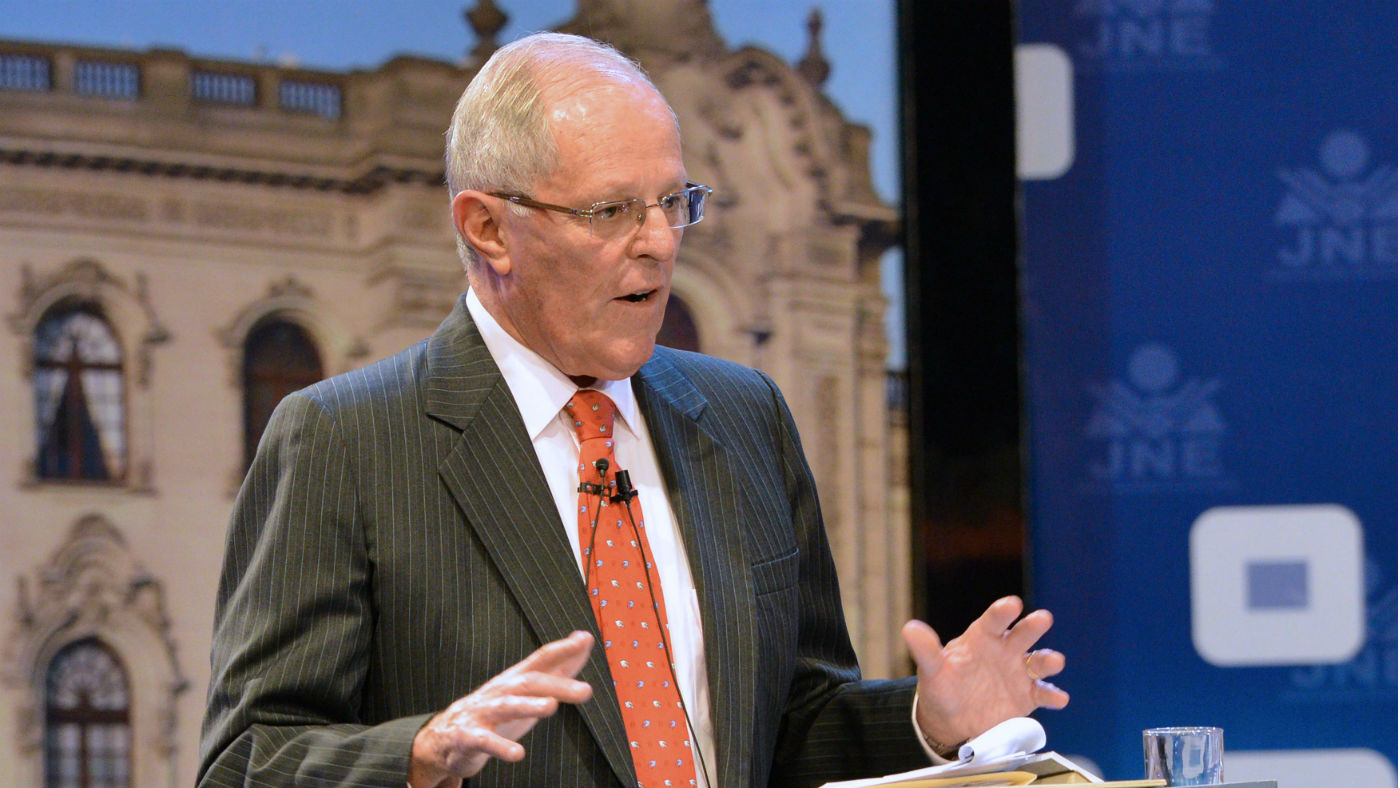Embattled Peru president resigns amid corruption claims
Pedro Pablo Kuczynski protests his innocence as he steps down

A free daily email with the biggest news stories of the day – and the best features from TheWeek.com
You are now subscribed
Your newsletter sign-up was successful
After less than two years in office, Peru’s president Pedro Pablo Kuczynski has resigned over a vote-buying scandal.
The embattled 79-year-old continued to deny wrongdoing as he stepped down, stating that he did not want to be an obstacle to the country’s development.
Secret video recordings showed his allies offering opposition politicians financial rewards if they backed him in the vote. Kuczynski said the video footage had been edited to “paint me as a corrupt person” as part of a “plot to destroy the government”.
The Week
Escape your echo chamber. Get the facts behind the news, plus analysis from multiple perspectives.

Sign up for The Week's Free Newsletters
From our morning news briefing to a weekly Good News Newsletter, get the best of The Week delivered directly to your inbox.
From our morning news briefing to a weekly Good News Newsletter, get the best of The Week delivered directly to your inbox.
He insisted: “I categorically reject these unsubstantiated claims and reaffirm my commitment to an honest, moral and fair Peru for everyone.”
The resignation of Kuczynski, a former Wall Street banker who studied at Oxford University, will be formally voted on by Peru’s Congress. The Peruvian Constitution states that Vice-President Martin Vizcarra will become acting president in his place.
The vote-buying scandal comes hot on the heels of a separate scandal in which Kuczynski was accused of receiving illegal payments from the Brazilian construction giant Odebrecht. There was also outrage when the Peruvian leader pardoned former President Alberto Fujimori, who had been convicted of human rights violations.
According to the New York Times, the resignation “does not bode well for Latin America”, where Peru’s economic stability is at variance with the country’s “growing political turmoil”.
A free daily email with the biggest news stories of the day – and the best features from TheWeek.com
Attention now turns to Brazil where former President Luiz Inacio Lula da Silva could be sent to jail over corruption allegations.
-
 What are the best investments for beginners?
What are the best investments for beginners?The Explainer Stocks and ETFs and bonds, oh my
-
 What to know before filing your own taxes for the first time
What to know before filing your own taxes for the first timethe explainer Tackle this financial milestone with confidence
-
 The biggest box office flops of the 21st century
The biggest box office flops of the 21st centuryin depth Unnecessary remakes and turgid, expensive CGI-fests highlight this list of these most notorious box-office losers
-
 Epstein files topple law CEO, roil UK government
Epstein files topple law CEO, roil UK governmentSpeed Read Peter Mandelson, Britain’s former ambassador to the US, is caught up in the scandal
-
 Iran and US prepare to meet after skirmishes
Iran and US prepare to meet after skirmishesSpeed Read The incident comes amid heightened tensions in the Middle East
-
 Israel retrieves final hostage’s body from Gaza
Israel retrieves final hostage’s body from GazaSpeed Read The 24-year-old police officer was killed during the initial Hamas attack
-
 China’s Xi targets top general in growing purge
China’s Xi targets top general in growing purgeSpeed Read Zhang Youxia is being investigated over ‘grave violations’ of the law
-
 Panama and Canada are negotiating over a crucial copper mine
Panama and Canada are negotiating over a crucial copper mineIn the Spotlight Panama is set to make a final decision on the mine this summer
-
 Why Greenland’s natural resources are nearly impossible to mine
Why Greenland’s natural resources are nearly impossible to mineThe Explainer The country’s natural landscape makes the task extremely difficult
-
 Iran cuts internet as protests escalate
Iran cuts internet as protests escalateSpeed Reada Government buildings across the country have been set on fire
-
 US nabs ‘shadow’ tanker claimed by Russia
US nabs ‘shadow’ tanker claimed by RussiaSpeed Read The ship was one of two vessels seized by the US military